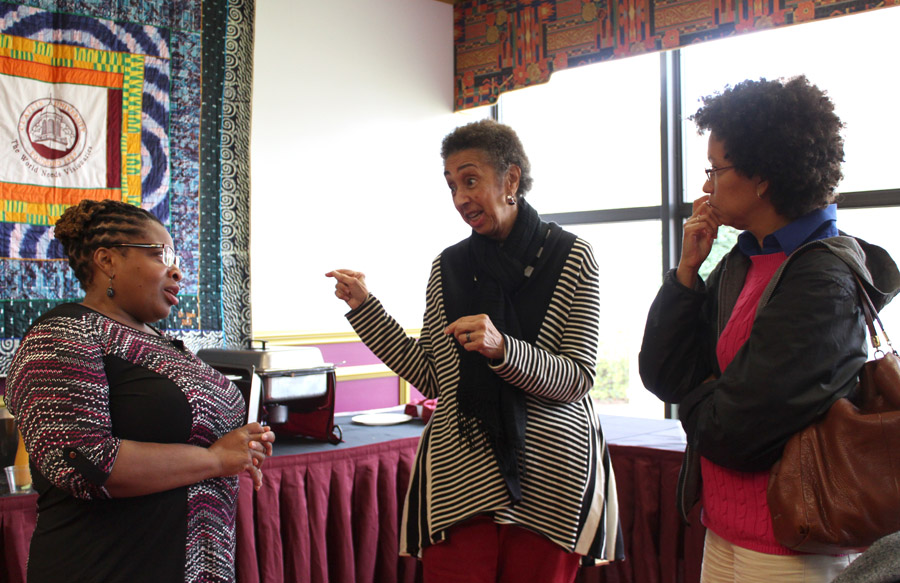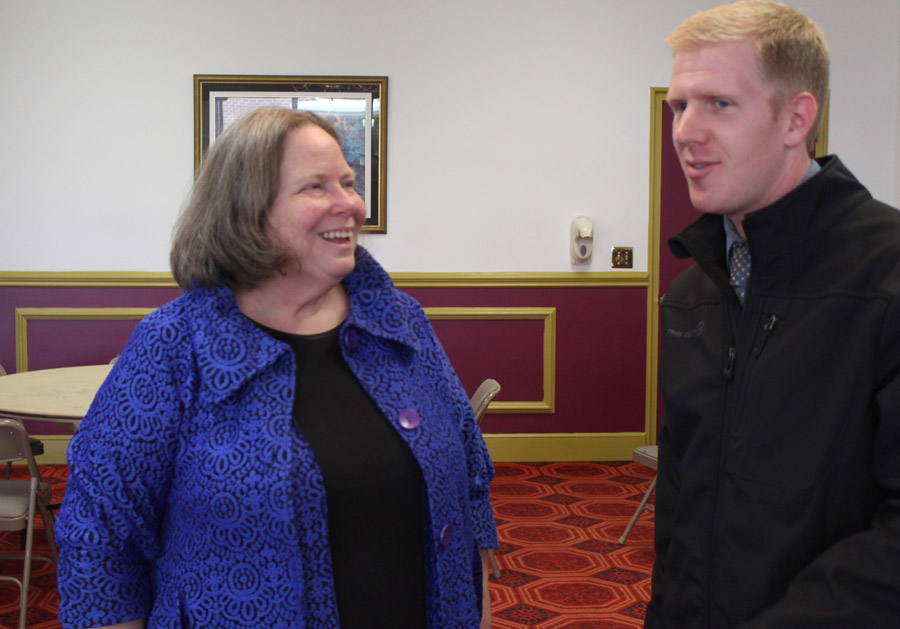'The Gloves Are Off: SC Women Fight for Justice'
By: OLANMA HAZEL MANG
Mar 12, 2018

From left, Dr. Arlecia Simmons, Dr. Millicent Brown and Dr. Alison McCletchie. (Panther photo by Olanma Hazel Mang)
Claflin University held a Finney Social Justice Series event in celebration of Women’s History Month on Tuesday, March 6.
Susan Dunn, legal director for the American Civil Liberties Union of South Carolina, was a guest speaker. She spoke about nine notable women who fought for social justice in South Carolina throughout history.
Her presentation, titled "The Gloves Are Off: SC Women Fight for Justice," highlighted the roles women play in the fight for equality and freedom in America.
“Because of the roles women have taken, often times their very important work is behind the scenes. It isn't recognized as exceptional when, in fact, it was essential,” she said.
The women Dunn spoke about were: Eliza Lucas Pinckney, Sarah and Angelina Grimke, Mary McCleod Bethune, Septima Poinsette Clark, Modjeska Simpkins, Althea Gibson, Marian Wright Edelman, Jean H. Toal and Bree Newsome.
In an interview after the event, Dunn said people interested in social activism should believe in the work and the other people working with them.
“Figuring out what you can do within a community to help that community grow and change, it's slow, tedious, thoughtful, long-term work. It's not social media work,” she said.
Part of this, she said, is being engaged with what goes on in the government and being proximate to the issues about which you are concerned.
Civil rights activist and former Claflin history professor Millicent Brown said the young generation should be an extension of the work of activists of the past. “The business of pushing it forward is really very important when it comes to social justice work.”
Brown said students need to use their education to start conversations about societal issues in their hometowns and in America as a whole.
“You do have issues dealing, especially, with race and gender and class that you do have to pay attention to. So don't worry about the ones that I dealt with; what are the ones you have to deal with; what are the strategies you can learn from people like [Dunn]; how did they help to break down some of these legal barriers? It's an ongoing thing,” Brown said.
She encouraged the audience to use "Somebody Had To Do It," a digital research project, to learn more about the stories of African-American people who were part of the desegregation and integration program of the 1960s.
Brown was one of the plaintiffs in the "1963 Millicent Brown et al. vs. School District No. 20 Charleston, South Carolina" case that allowed her to attend an exclusively white school in Charleston.
She created the research project in 2006 and it is now part of the Avery Research Center in Charleston.

From left, Susan Dunn and Matthew Hiatt. (Panther photo by Olanma Hazel Mang)